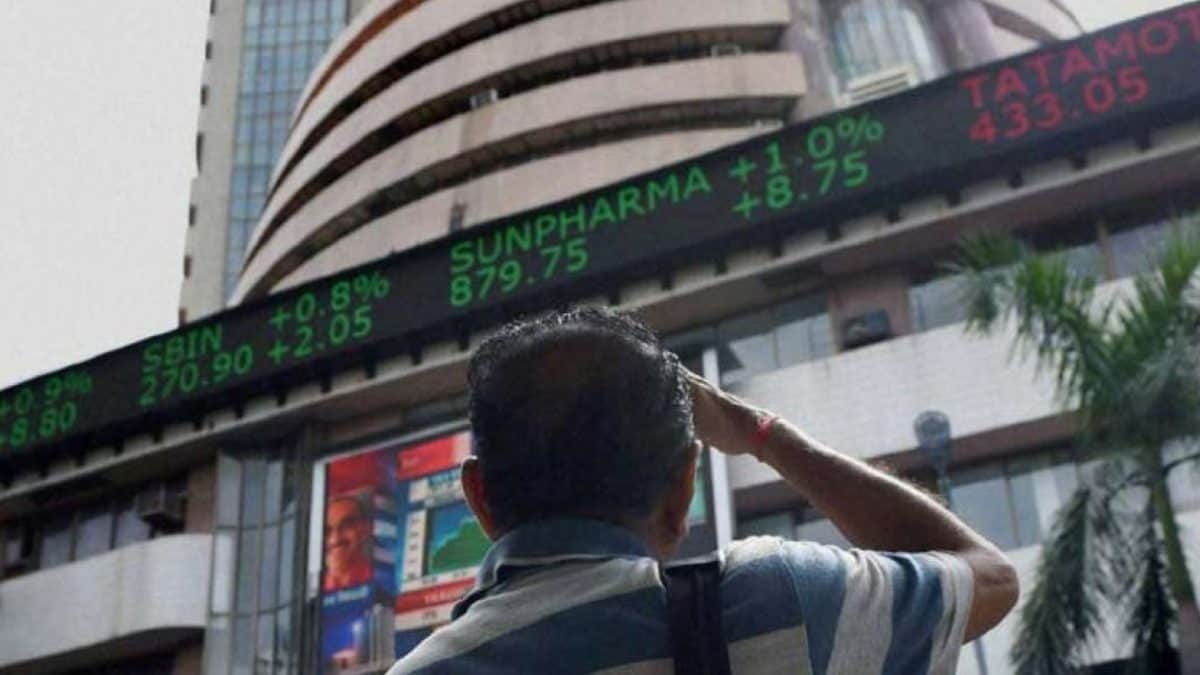

The Indian stock market experienced a turbulent opening today, with the Sensex plummeting over 500 points, following the United States' announcement of a 25% tariff on Indian imports. This decision by the U.S. administration, set to take effect this Friday, has triggered concerns among investors and policymakers alike, casting a shadow over the prospects of a potential trade deal between the two nations.
Market Response and Sectoral Impact
The immediate impact of the tariff announcement was felt across various sectors. The Nifty also experienced a significant drop, slipping below the 24,700 mark. Export-oriented stocks, particularly those in the IT, textile, auto, pharma, gems and jewellery, and engineering sectors, are expected to face selling pressure. Major Nifty losers included Reliance Industries, Tata Motors, Dr. Reddy's Labs, Titan Company, Bajaj Finance, Mahindra & Mahindra, and Bharti Airtel.
Specifically, IT stocks such as TCS, Infosys, Wipro, and HCL Tech, which have significant exposure to the U.S. market, are anticipated to experience pressure. Similarly, pharma companies like Sun Pharma, Dr. Reddy's, Lupin, Aurobindo Pharma, and Cipla, along with auto companies such as Tata Motors, Samvardhana Motherson, Bharat Forge, and Bosch India, are expected to face challenges. The gems and jewellery sector is also bracing for potential disruptions, job losses, and higher prices for U.S. buyers.
Economic Implications and Expert Opinions
Experts suggest that the tariffs could pose a headwind to India's GDP growth. Aditi Nayar, Chief Economist at ICRA, stated that the extent of the downside will depend on the size of the penalties imposed. Garima Kapoor, EVP at Elara Capital, cautioned that the new tariff puts India at a disadvantage compared to export competitors like Vietnam, Indonesia, and the Philippines. If pharmaceuticals are included in the tariff, the damage could be significant, as the U.S. accounts for over 30% of India's pharma exports.
Some experts have begun trimming their growth forecasts for India, as the tariffs may affect exports and could also impact private capital expenditure. Concerns have also been raised about the potential impact on employment, particularly in sectors like gems and jewellery.
India's Response and Future Outlook
The Indian government has acknowledged the U.S. decision and stated that it is "studying its implications" while reaffirming its commitment to a "fair, balanced, and mutually beneficial" trade deal. The Ministry of Commerce and Industry emphasized the importance of protecting the welfare of farmers, entrepreneurs, and MSMEs, indicating that it will take necessary steps to secure national interests.
Despite the current tensions, both nations are expected to continue negotiations, with a U.S. delegation anticipated to arrive in India for further discussions. Some experts believe that the tariffs are a pressure tactic to open Indian markets wider for U.S. products and dissuade India from deepening its engagement with Russia in defense and energy sectors.
Nilesh Shah suggests that India should focus on boosting its competitiveness to mitigate the impact of the tariffs. The Indian government may consider measures to support affected sectors and diversify its export markets.
While the long-term impact of the tariffs remains uncertain, the immediate effect on the Indian stock market is undeniably negative. Investors are advised to remain cautious and monitor developments in trade negotiations between India and the U.S.